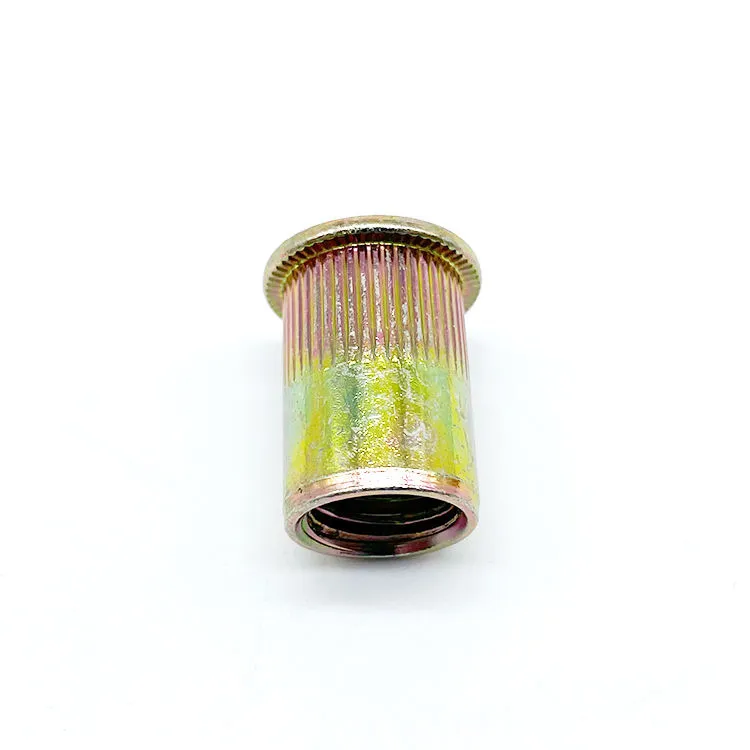

High-Quality 8mm Spring Washers for Enhanced Performance and Durability
Aug . 17, 2024 13:41 Back to list
High-Quality 8mm Spring Washers for Enhanced Performance and Durability
Understanding the Importance of 8mm Spring Washers
Spring washers are essential components in various mechanical assemblies, providing a range of functions from shock absorption to maintaining tightness in joints. Specifically, the 8mm spring washer is a popular choice in numerous applications across automotive, industrial, and domestic sectors. In this article, we will explore the significance of 8mm spring washers, their applications, materials, and installation, as well as considerations for proper use.
What is an 8mm Spring Washer?
An 8mm spring washer is a thin, circular piece of metal that is designed with a slight curve or spring-like feature. This unique shape allows the washer to exert a radial force against the nut or bolt it is paired with. The primary function of a spring washer is to secure the fastening elements in place and prevent loosening caused by vibrations and external forces. The “8mm” designation indicates the inner diameter of the washer, which is suitable for bolts or screws that are also 8mm in diameter.
Applications of 8mm Spring Washers
8mm spring washers find their use in a variety of applications. In automotive settings, they are commonly used in engine components, where they help maintain torque in fastening parts under varying temperatures and conditions. In industrial machinery, these washers support high-load applications where stability and reliability are paramount.
In the construction industry, 8mm spring washers serve as an effective solution for securing structural elements. They are also widely employed in electronics, where vibration can be a common issue. Overall, the versatility of 8mm spring washers makes them invaluable in almost any environment where mechanical fastening is necessary.
Materials Used in 8mm Spring Washers
The effectiveness of a spring washer largely depends on the material from which it is made. Common materials include carbon steel, stainless steel, and various alloys.
1. Carbon Steel Often used for general purposes, carbon steel spring washers are cost-effective and provide decent strength. However, they may be susceptible to rust and corrosion if not properly treated.
spring washer 8mm

2. Stainless Steel Ideal for applications requiring resistance to corrosion and rust, stainless steel spring washers are commonly utilized in environments exposed to moisture or chemicals.
3. Alloys Some washers are made from specialized alloys that enhance performance in extreme temperatures or with specific mechanical stresses.
Installation Tips
Proper installation of 8mm spring washers is crucial for their effectiveness. Here are some tips to ensure optimal performance
1. Clean Surfaces Before installation, it is important to clean the surfaces where the washer will be used. Dirt or debris can compromise the washer's performance.
2. Positioning Ensure that the curved side of the washer is facing the component it is securing. This allows the spring action to work effectively.
3. Use in Conjunction Spring washers are often used in conjunction with flat washers to provide additional support and surface area, reducing wear over time.
4. Check Tightness Regularly Regularly inspecting and tightening fasteners that utilize spring washers can prevent unexpected failures due to loosening over time.
Conclusion
In conclusion, 8mm spring washers are small but mighty components that enhance the durability and reliability of mechanical assemblies. Their ability to absorb shocks, resist vibrations, and maintain tightness makes them integral in numerous industries. By understanding their applications, materials, and installation methods, users can ensure the longevity and effectiveness of their mechanical systems. Whether in automotive parts, industrial machinery, or everyday devices, 8mm spring washers play a critical role in the world of fastening technologies.
Latest news
-
High-Strength Hot-Dip Galvanized Bolts-Hebei Longze|Corrosion Resistance&High Strength
NewsJul.30,2025
-
Hot Dip Galvanized Bolts-Hebei Longze|Corrosion Resistance&High Strength
NewsJul.30,2025
-
Hot Dip Galvanized Bolts - Hebei Longze | Corrosion Resistance, High Strength
NewsJul.30,2025
-
High-Strength Hot Dip Galvanized Bolts-Hebei Longze|Corrosion Resistance, Grade 8.8
NewsJul.30,2025
-
Hot Dip Galvanized Bolts-Hebei Longze|Corrosion Resistance,High Strength
NewsJul.29,2025
-
High-Strength Hot Dip Galvanized Bolts - Hebei Longze Metal Products Manufacturing Co., Ltd.|corrosion resistance&high strength
NewsJul.29,2025

